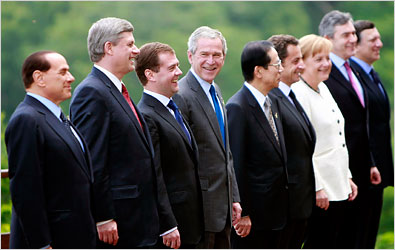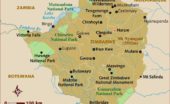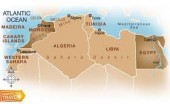Re Ian Bremmer 'Could third-party candidates upend the 2024 US election?' 3 April The current political movement in the USA…
G8 July 7-9 2008
Written by Diana Thebaud Nicholson // July 10, 2008 // Africa, Agriculture & Food, Climate Change, Economy, Environment & Energy, Geopolitics, Sustainable Development // Comments Off on G8 July 7-9 2008
See also World Hunger , Zimbabwe
(Xinhua) Backgrounder: Key facts about G8 summit
A world of troubles to tackle
(The Economist) The G8 leaders, meeting in Japan, have many challenges but few tools
Pricey oil, the food crisis and the credit crunch: the new challenges either have their roots beyond the G8, or have quickly raced across borders. Either way, they highlight how the G8’s supposed goals work increasingly at cross-purposes. The call for lower fuel prices stands at odds with energy efficiency, cutting carbon dependence and tackling climate change—as does the drive against nuclear proliferation. Emphasising biofuels means less land for food production, leading to higher prices and hungry bellies. The desire of rich countries to avoid recession raises questions about their resolve to nip inflation. The rich-country club (plus Russia), representing a minority of the world’s population, appears ill-equipped for the challenges.
July 10
Bush to G8: ‘Goodbye from the world’s biggest polluter’
(The Independent) President Bush made the private joke in the summit’s closing session, senior sources said yesterday. His remarks were taken as a two-fingered salute from the President from Texas who is wedded to the oil industry. He had given some ground at the summit by saying he would “seriously consider” a 50 per cent cut in carbon emissions by 2050.
However, there was progress towards a deal on the world trade talks in Geneva. On the final day of their three-day summit, the G8 countries agreed to instruct their negotiators to make every effort to secure a deal when talks resume on 21 July.
July 9
PM hails breakthrough on climate change at 2008 G8 Summit
“There is a new consensus on climate change,” said Prime Minister Harper. “The United States and Russia have joined with us this year and now all G8 countries agree on the goal of a 50 percent reduction in global greenhouse gas emissions by 2050. Moreover, G8 leaders have also accepted our longstanding argument that the post-2012 global climate change framework must include all major emitters.”
China and India hold out on emission targets
By David Pilling in Toyako
(FT) China and India failed on Wednesday to give their support to halving carbon emissions by 2050, dimming briefly raised hopes of a breakthrough on climate change at the Group of Eight summit.
The inability to win over the developing countries is a blow to the G8, which had expected their support. This is the first time they have defied the developed world openly on this issue.
Hamish McRae: The G8 countries may run the old world economy. But it’s the new one that matters
(The Independent) Why should we care about the G8 and what they say about the future of the world economy, carbon emissions and all the other stuff that is emerging from their summit meeting in Hokkaido?
July 8
G-8 Leaders Pledge to Cut Emissions in Half by 2050
(NYT) Environmentalists criticized the pledge [calling] it a missed opportunity and said it ignores the urgent need to cut emissions more rapidly. (BBC) G8 urged to do more for climate Mexico, Brazil, China, India and South Africa challenged the Group of Eight countries to cut their greenhouse gas emissions by more than 80% by 2050. (Al Jazeera) Scientists condemn G8 climate plan calling [it] insufficient to arrest climate change.
July 7
G8 negotiators reach tentative climate deal
Mon 7 Jul 2008, 23:45 GMT
TOYAKO, Japan (Reuters) – Group of Eight negotiators have reached a tentative agreement on the wording of a statement on ways to fight global warming that will be put to their leaders on Tuesday morning, sources familiar with the talks said.
A statement that goes beyond last year’s G8 summit pledge to “seriously consider” carbon emissions cuts of 50 percent by 2050 is especially important for Japanese Prime Minister Yasuo Fukuda, who has made climate change the centrepiece of the talks.
But efforts to clinch a deal have been hampered by deep differences within the G8. Details of the agreement, expected to be unveiled later on Tuesday, were not immediately available.
Africa dominates first day of G8 summit
Seven African leaders call for aid to help bolster agricultural production
HONG KONG (MarketWatch) — Africa dominated the agenda at the annual summit of the Group of Eight Monday, as delegates from the leading industrialized nations discussed a range of issues with their African counterparts, including whether enough aid has been forthcoming to help alleviate poverty.
A contingent of seven African heads of state called upon the G8 leaders to increase agricultural aid, according to a report in the Nikkei newspaper, which cited comments by a Japanese official. Their request was made during a special session held to hear how they were coping with rising food and energy prices. CBC
Leaders lack power to take action on the biggest issues at G8 summit
(Times Online) The G8 summit is supposed to bring together the most powerful leaders in the world, but seldom have they formed a less credible group than the one that meets in the Japanese resort of Lake Toya today.
Rising costs dominate G8 summit
(BBC) Rising food and fuel prices are topping the agenda for leaders of the world’s major industrialised nations as they start a three-day summit in Japan.
(Al Jazeera)
Asian stocks close mostly up as G8 summit gets underway
(Channel News Asia) HONG KONG – Asian stocks closed mostly higher on Monday, boosted by a sharp jump in China, as the G8 summit of world leaders began with the global oil and food price crises high on the agenda.
Environment on hold as economy tops G8 agenda
Three-Day summit starts today. Western leaders to meet with African counterparts to discuss Mugabe
(Canwest News Service) RUSUTSU, Japan — The summit is expected to be dominated by talk about the global economy, which has been hampered by slowing growth as well as soaring oil and food prices.
Dollar Advances on Speculation G-8 Leaders to Support Currency
July 7 (Bloomberg) — The dollar rose against the euro and the yen on speculation leaders of the Group of Eight nations will signal support for the U.S. currency following a meeting starting today.
Economy looms as key issue for G8 World leaders prepare to start a key summit in Japan expected to focus on soaring global food and fuel prices.
July 6
Key issues of the G8 meeting
(Forbes) GLOBAL ECONOMY: Record crude oil prices and the skyrocketing cost of food that are threatening world economic growth top the agenda, with leaders pledging to come up with concrete steps to help alleviate the crisis that is fuelling global inflation and also aggravating poverty. Also under discussion will be a collective message on how to stabilise global markets as the U.S. economy flags.
CLIMATE CHANGE: After agreeing at the last G8 summit in Germany to ‘consider seriously’ at least halving greenhouse gas emissions by 2050, the leaders are under pressure from host Japan to make strides in creating a post-2012 climate change framework, but disagreements on setting gas emission targets are likely to hamper real progress. …
July 3
Who runs the world?
Wrestling for influence
(The Economist) The post-war global institutions have largely worked well. But rising countries and growing threats are challenging their pre-eminence
July 2
(Planet Ark/Reuters) TOKYO – G8 leaders have a 50-50 chance of agreeing next week on a global goal of halving greenhouse gas emissions by mid-century, a Japanese foreign ministry official said, adding that failure could hurt UN-led climate talks.
June 20
CEO Climate Policy Recommendations to G8 Leaders
Tokyo, Japan, 20 June 2008 – Professor Klaus Schwab, Executive Chairman and Founder of the World Economic Forum, presented a detailed statement to Prime Minister Yasuo Fukuda of Japan on how best to manage climate change after the Kyoto Protocol expires in 2012
Professor Schwab made the presentation on behalf of the 100 international CEOs who have endorsed the “CEO Climate Policy Recommendations to G8 Leaders”, which is a groundbreaking statement that has taken 16 months and an international effort to prepare. In collaboration with the World Business Council for Sustainable Development (WBCSD) and the Pew Centre on Global Climate Change as a resource partner, the Forum convened discussions with over 500 business executives and climate experts from around the world during 2006 and 2007 to help the business community develop its ideas.




